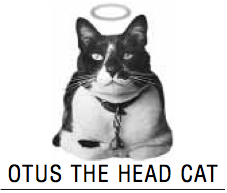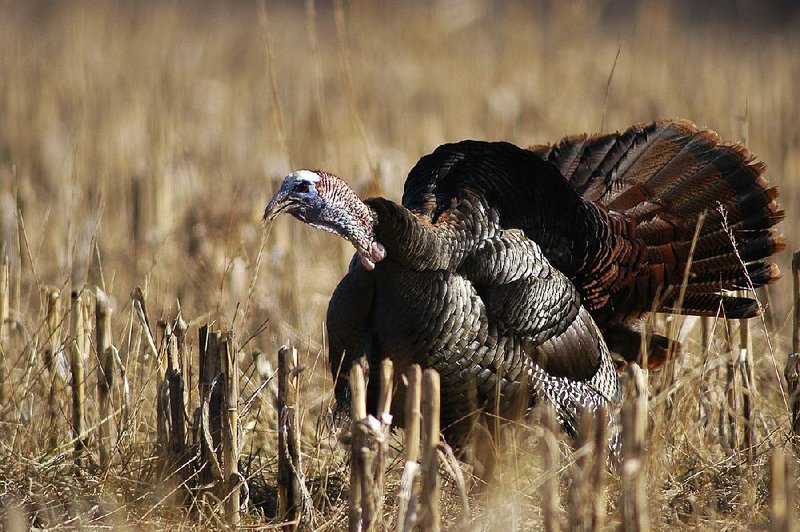The email was pleasant enough, but I couldn't help but detect an underlying tone of effete grammar police snobbery over a simple typo two weeks ago. Here it is:
dear otus,

Disclaimer: Fayetteville-born Otus the Head Cat's award-winning column of 👉 humorous fabrication 👈 appears every Saturday.
re: wattle v. waddle
i assume you did mean to write wattle. as my old teacher used to say, "it's wattle you wear and waddle you walk." but you knew that.
you are really funny, but be aware that many readers look to you for your meticulous attention to language.
i'll sign my name if you promise not to print it.
-- mrs. [name withheld],
fayetteville
I'll overlook the e.e. cummings-esque eschewation of the upper case. Perhaps her shift key was broken or she dictated her email to her pet cockroach Archy.
Look it up under Don Marquis.
I suspect, however, that mrs. [name withheld] is a retired English teacher because she has the same obsessive compulsive linguistic pugnaciousness as Bernadette Kinlaw, the erudite and informative author of this paper's entertaining and pedagogical Watch Your Language column each Monday.
Or mrs. [name withheld] could be one of those anal-retentive readers who spend their retirement years scrutinizing the paper and making a federal case out of every typo that slips through our hard-working editors and copy desk to make it into print.
For example, these folks find something like, "The man complained that the doctor's office had a dearth of reeding material." We all know the intent was to complain about a lack of periodicals and not the lack of small semicylindrical molding or ornamentation.
I presume there was a lack of magazines in the doctor's waiting rheum.
I have nothing against those who consider themselves guardians of the language. Goodness knows we have precious few sentinels manning the linguistic portals.
What appeared in my column was, "The characteristic family waddle has begun to manifest itself upon Owner's otherwise ruggedly handsome chiseled visage." Perhaps I did mean waddle and not wattle. Perhaps Owner's family does, indeed, have a distinctive gait handed down from generation to generation.
But mrs. [name withheld] assumes that I fell victim to a homophone -- one of those words that's pronounced the same as another, but is spelled differently and has a different meaning.
Homophones and their cousins, homonyms and homographs, have long been the bane of those for whom English is a second language. Explaining the entomology to natives is difficult enough.
"Homo" is the Greek word for "same." All homoousian words have the same homonymous derivations. They are, in effect, homoecious.
Homonyms are not to be confused with their heteronomous kin -- words such as tear and desert that are spelled the same but pronounced differently.
Examples: He shed a tear on the photo that had a large tear in it. And, the soldier made plans to desert in the hot desert.
Another example is minute. Pronounced "MEN-ut," it means 60 seconds; pronounced "my-NOOT," it means itsy-bitsy.
Homonyms are words that are spelled and pronounced exactly alike but have different meanings. Example: cleave meaning "to cut," and cleave meaning "to adhere."
Homophones are words that sound alike but are different in meaning or spelling. Example: "Be a dear and clean up them deer innards from where you field-dressed that sucker in the carport."
Homographs are words that are spelled the same, but have different pronunciations. Example: "The captain put a giant red bow on the bow of the ship."
With these definitions in mind, my waddle/wattle example fits none of the above, not even homophone. If one pronounces the former correctly, it should come out WAH-dull. The latter would be WAH-tull. It's not like, say, phase/faze or pedal/peddle. That waddle and wattle seem the same is due to the acoustical vagaries of regional pronunciation, especially in the South.
There is a current local car commercial where the salesman makes a joke about pronouncing "dill" and "deal" the same. But the best examples are awl, all and oil. To the finely tuned Southern ear all three are pronounced exactly the same.
As this: "My awl was dull after I poked them holes." "Awl them peckerwoods is stewpid." "My Can-Am Outlander 1000 needs a quart of awl 'fore I head to the deer woods."
Until next time, Kalaka reminds you that homonyms should not be confused with bijugates, which can be conjugated both ways.
Disclaimer
Fayetteville-born Otus the Head Cat's award-winning column of
Z humorous fabrication X
appears every Saturday. Email:
mstorey@arkansasonline.com
HomeStyle on 03/04/2017
